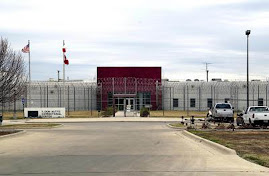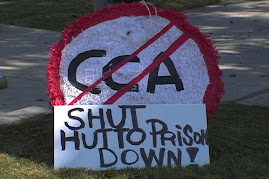The Obama administration intends to announce an ambitious plan on Thursday to overhaul the much-criticized way the nation detains immigration violators, trying to transform it from a patchwork of jail and prison cells to what its new chief called a “truly civil detention system.”
One move starts immediately: the government will stop sending families to
the T. Don Hutto Residential Center, a former state prison near Austin, Tex.,
that drew an American Civil Liberties Union lawsuit and scathing news coverage for putting young children behind razor wire.
“We’re trying to move away from ‘one size fits all,’ ” John
Morton, who heads the Immigration and Customs Enforcement agency as
assistant secretary of homeland security, said in an interview on Wednesday.
Detention on a large scale must continue, he said, “but it needs to be done
thoughtfully and humanely.”
Hutto, a 512-bed center run for profit by the Corrections Corporation
of America under a $2.8 million-a-month federal contract, was presented as a
centerpiece of the Bush administration’s tough approach to immigration
enforcement when it opened in 2006. The decision to stop sending families there
— and to set aside plans for three new family detention centers — is the Obama
administration’s clearest departure from its predecessor’s immigration
enforcement policies. ...Ms. Gupta said the changes at Hutto since 2006 illustrated the importance of enforceable rules. Before the A.C.L.U. lawsuit was settled in 2007, some children under 10 stayed as long as a year, mainly confined to family cells with open toilets, with only one hour of schooling a day. Children told of being threatened by guards with separation from their parents, many of them asylum-seekers from around the world.
Only through judicial enforcement of the settlement, she said, have children been granted such liberties as wearing pajamas at night and taking crayons into family cells. The settlement also required the agency to honor agency standards that had been ignored, like timely reviews of the decision to detain a family at all. Some families have been deported, but others were released or are now awaiting asylum decisions in housing run by nonprofit social service agencies.
That kind of stepped-up triage could be part of the more civil detention system envisioned by Mr. Morton and Dr. Schriro, who has been reviewing the detention system for months and is expected to report her recommendations soon.
But the Hutto case also points to the limits of their approach, advocates say. Under the settlement, parents and children accused of immigration violations were detained when possible at the country’s only other family detention center, an 84-bed former nursing home in Leesport, Pa., called the Berks Family Shelter Care Facility. The number detained at Hutto has dropped sharply, to 127 individuals from as many as 450.
Advocates noted that Berks, though eclipsed by the criticism of Hutto — the subject of protest vigils, a New Yorker article and a documentary — also has a history of problems, like guards who disciplined children by sending them across the parking lot to a juvenile detention center, and families’ being held for two years.
The Hutto legal settlement expires Aug. 29. In the most recent monitoring report last month, Magistrate Judge Andrew W. Austin wrote: “Although the use of this facility to hold families is not a violation of the settlement agreement, it seems fundamentally wrong to house children and their noncriminal parents this way. We can do better.”
Mr. Morton, a career prosecutor, seemed to agree. Hutto will be converted into an immigration jail for women, he said, adding: “I’m not ruling out the possibility of detaining families. But Berks is the better facility for that. Hutto is not the long-term answer.”
Thursday, August 6, 2009
BREAKING NEWS: ICE ENDS FAMILY DETENTION AT T DON HUTTO
At 11 pm last night, the New York Times led with the following story:








